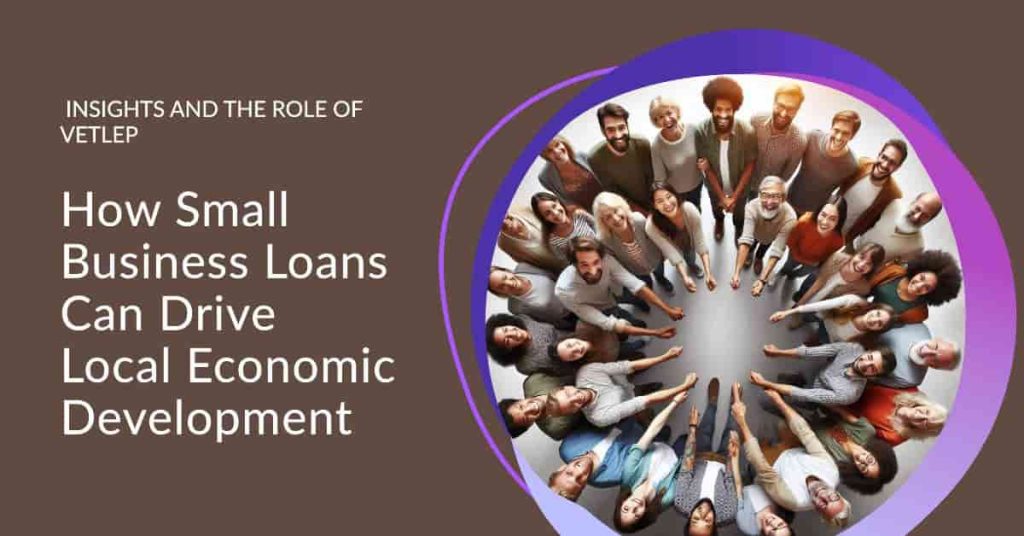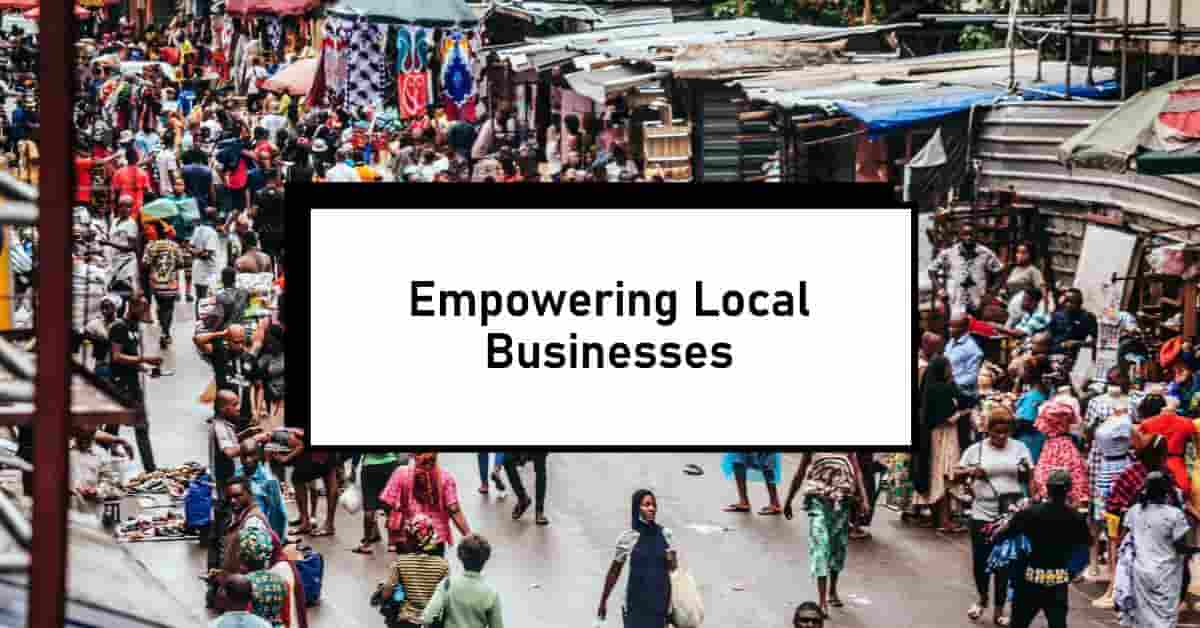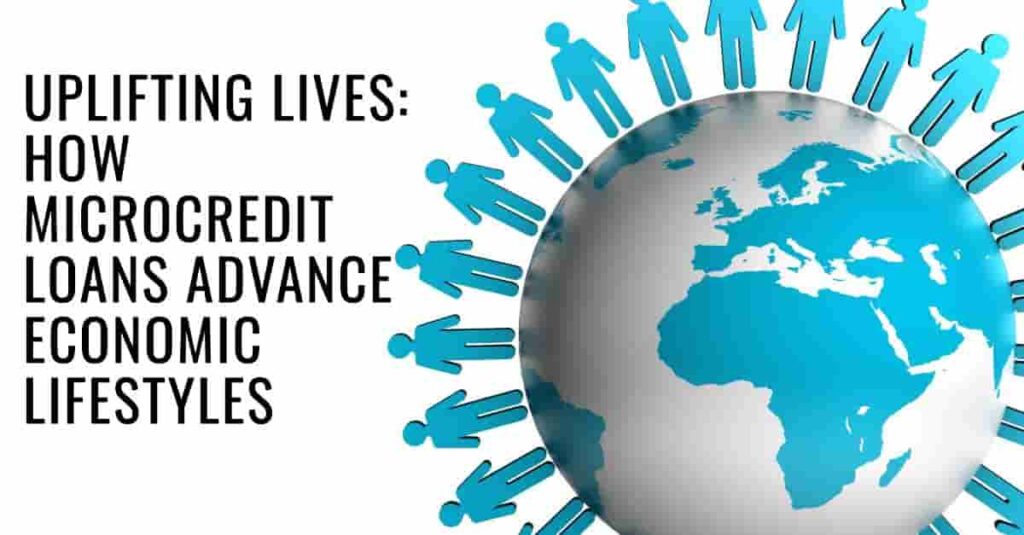
How Small Business Loans Can Drive Local Economic Development: Insights and the Role of VETLEP
Small businesses are integral to economic development, particularly at the local level. They are significant contributors to job creation, innovation, and community resilience. However, access to capital remains one of the most pressing challenges faced by small businesses, especially in underdeveloped or marginalized areas. Small business loans can serve as powerful tools for local economic growth by providing the necessary financial resources for entrepreneurs to start or expand their operations.
In this context, the Valdymas Entrepreneurial and Transformational Leadership Empowerment Program (VETLEP)has emerged as a key player in enhancing access to capital for small businesses. By offering collateral-free loans and integrating financial literacy, savings, and leadership development into its empowerment framework, VETLEP provides entrepreneurs with the tools to achieve sustainable growth. This essay will explore how small business loans drive local economic development, emphasizing the unique contribution of VETLEP and its holistic approach.

- 1️⃣ Job Creation and Employment Growth
First and foremost, small business loans significantly contribute to job creation, a key driver of local economic development. When small businesses gain access to capital, they can expand their operations, invest in infrastructure, and hire more employees. According to research from the Small Business Administration (SBA), small businesses create approximately two-thirds of net new jobs annually, making them critical to local employment (SBA, 2020). Therefore, small business loans, by providing the capital needed for expansion, directly translate into new employment opportunities within local communities.
As more jobs are created, there is a positive feedback loop that enhances local economies. Increased employment leads to higher disposable incomes, which, in turn, boosts consumer spending. This increased demand for goods and services within the community further fuels local businesses, creating a self-sustaining cycle of economic growth (Drucker & Feser, 2019).
- 2️⃣Encouraging Innovation and Competitiveness
Moreover, small business loans empower entrepreneurs to innovate. Innovation is a key driver of competitiveness, especially in today’s globalized markets, where businesses must continuously adapt to changing consumer preferences and technological advances. Access to capital allows small businesses to invest in research and development, adopt new technologies, and improve their processes or product offerings (Petersen & Rajan, 1994).
In fact, a study by the Organisation for Economic Co-operation and Development (OECD) indicates that small businesses that receive loans are more likely to innovate, which in turn boosts their productivity and competitiveness (OECD, 2019). By funding initiatives such as new product development or process improvements, small business loans can help local enterprises compete more effectively, not only within their local markets but also on a broader scale.
- 3️⃣Stimulating Local Supply Chains
Another crucial way that small business loans contribute to local economic development is by stimulating local supply chains. Small businesses often source their materials, services, and labor from within their communities, creating an interconnected web of economic activity. For example, a loan that allows a local manufacturer to expand its operations may lead to increased demand for local raw materials, transport services, or skilled labor. This creates a multiplier effect, where the financial benefits of the loan ripple through the local economy, benefiting multiple businesses and sectors (Mazzucato & Macfarlane, 2019).
Thus, small business loans have the potential to fortify local supply chains, enhancing economic stability. As local businesses grow and succeed, they are also able to support other businesses, creating a stronger and more interconnected economic ecosystem.
- 4️⃣Promoting Economic Inclusivity
Furthermore, small business loans, particularly those offered to underserved or marginalized groups, can play a critical role in promoting economic inclusivity. Many small business owners, especially women, ethnic minorities, and individuals in rural areas, often face barriers in accessing traditional bank loans due to lack of collateral, poor credit history, or systemic discrimination (Beck, Demirgüç-Kunt, & Maksimovic, 2005). Loan programs designed to be inclusive of these groups help level the playing field, allowing entrepreneurs from diverse backgrounds to participate fully in the local economy.
Research has shown that inclusive economic growth is more sustainable over time, as it broadens the base of economic contributors and reduces poverty and inequality (World Bank, 2017). By providing loans to underrepresented entrepreneurs, programs like VETLEP not only enhance local economic development but also contribute to greater social equity and cohesion.

The Valdymas Entrepreneurial and Transformational Leadership Empowerment Program (VETLEP) takes a unique approach to supporting small businesses by addressing both financial and non-financial needs of entrepreneurs. Its model goes beyond merely providing access to capital by integrating financial literacy, savings, mentorship, and leadership development into its empowerment framework.
- 1️⃣Collateral-Free Loans for Accessibility
One of the major innovations of VETLEP is its provision of collateral-free loans. For many entrepreneurs, especially in underserved regions, the requirement for collateral when applying for traditional loans is a significant barrier to accessing credit. According to a study by the International Finance Corporation (IFC), nearly 40% of small businesses in emerging markets cite collateral requirements as their primary reason for being unable to secure financing (IFC, 2016).
By offering loans without collateral, VETLEP makes it easier for small businesses to access capital, particularly those owned by entrepreneurs from marginalized communities. This approach is crucial in fostering financial inclusivity and ensuring that more individuals have the opportunity to grow their businesses and contribute to local economies.
- 2️⃣Savings as a Core Component of Financial Empowerment
Another key feature of VETLEP’s approach is its emphasis on savings as a pillar of financial empowerment. The program encourages entrepreneurs to develop a habit of saving, which serves as a financial safety net and a foundation for long-term business sustainability. Savings provide business owners with a buffer to manage cash flow, handle unexpected expenses, and finance future investments without relying exclusively on external loans.
According to Deaton (1991), savings are vital for reducing vulnerability to economic shocks, particularly in developing regions where access to social safety nets is limited. By fostering a culture of saving, VETLEP ensures that its entrepreneurs are financially empowered to make sound investment decisions, weather financial storms, and achieve sustainable growth.
- 3️⃣Comprehensive Business Training and Mentorship
In addition to providing loans and encouraging savings, VETLEP offers comprehensive business training and mentorship programs. These programs equip entrepreneurs with the knowledge and skills needed to effectively manage their businesses, make informed financial decisions, and maximize the impact of the loans they receive. As the literature suggests, financial education significantly enhances the likelihood of small business success (Lusardi & Mitchell, 2014).
Through its mentorship programs, VETLEP connects small business owners with experienced leaders and industry experts who provide guidance and support. This mentorship helps entrepreneurs navigate challenges, build strategic networks, and develop leadership skills, all of which are critical for scaling their businesses and contributing to local economic development.
- 4️⃣Leadership Development for Entrepreneurial Empowerment
Leadership development is another essential component of VETLEP’s holistic model. VETLEP recognizes that successful entrepreneurship requires more than just access to capital; it also requires the ability to lead teams, make strategic decisions, and inspire innovation. VETLEP’s leadership programs help entrepreneurs develop the confidence and skills necessary to manage their businesses effectively, foster innovation, and contribute to the broader economic ecosystem.
Leadership empowerment, in particular, has been identified as a critical factor in driving business success, with studies showing that entrepreneurs who receive leadership training are more likely to achieve business growth and sustainability (Avolio & Gardner, 2005). By focusing on leadership development, VETLEP ensures that its entrepreneurs are equipped not only with financial resources but also with the personal and professional tools to succeed.
In conclusion, small business loans are a powerful driver of local economic development. By providing entrepreneurs with the capital, they need to expand their operations, create jobs, innovate, and strengthen local supply chains, small business loans contribute to the overall growth and sustainability of local economies. Programs like VETLEP, which offer collateral-free loans and integrate financial literacy, savings, mentorship, and leadership development, take a holistic approach to supporting entrepreneurs, ensuring that they are well-equipped to contribute to local economic prosperity.
Through initiatives like VETLEP, it becomes clear that access to capital, when combined with comprehensive support systems, can lead to transformative economic outcomes. As such, governments, financial institutions, and development organizations should continue to invest in and expand similar programs to foster more inclusive and sustainable economic development across the globe.
- Bibliography
1️⃣ Avolio, B. J., & Gardner, W. L. (2005). Authentic leadership development: Getting to the root of positive forms of leadership. The Leadership Quarterly, 16(3), 315-338.
2️⃣ Beck, T., Demirgüç-Kunt, A., & Maksimovic, V. (2005). Financial and legal constraints to growth: Does firm size matter? Journal of Finance, 60(1), 137-177.
3️⃣ Deaton, A. (1991). Savings and liquidity constraints. Econometrica, 59(5), 1221-1248.
4️⃣ Drucker, J., & Feser, E. (2019). Regional industrial structure and agglomeration economies: An analysis of productivity effects. Regional Science and Urban Economics, 76, 1-12.
5️⃣ IFC (International Finance Corporation). (2016). MSME Finance Gap: Assessment of the Shortfalls and Opportunities in Financing Micro, Small, and Medium Enterprises in Emerging Markets. Washington, D.C.: IFC.
6️⃣ Lusardi, A., & Mitchell, O. S



